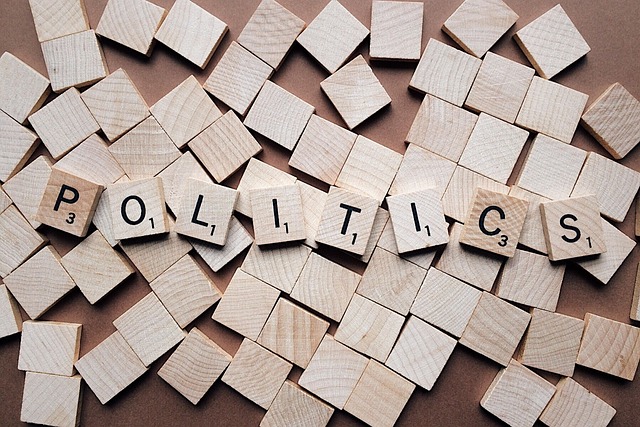The Influence of Political Ads on Election Campaigns
betbook250 com login, reddyanna247, play lotus365.com login:The Influence of Political Ads on Election Campaigns
In the world of politics, election campaigns play a vital role in determining the outcome of elections. And one of the key components of these campaigns is political advertising. Political ads have the power to influence voters, shape public opinion, and ultimately sway the results of an election. In this article, we will explore the various ways in which political ads impact election campaigns.
The Power of Political Advertising
Political advertising is a powerful tool that can shape the way voters perceive candidates and issues. Through a combination of compelling visuals, persuasive messaging, and targeted placement, political ads have the ability to reach millions of voters and sway their opinions.
One of the main advantages of political advertising is its ability to target specific demographics. Campaigns can use data analytics to identify key voter groups and tailor their ads to appeal to their interests and concerns. This targeted approach allows campaigns to deliver their message directly to the voters who are most likely to be influenced by it.
Furthermore, political ads have the ability to shape the narrative of an election campaign. By framing issues in a certain way and highlighting specific aspects of a candidate’s platform, ads can influence how voters perceive the candidates and their policies. For example, a campaign may choose to focus on a candidate’s strengths while downplaying their weaknesses, or they may seek to highlight the flaws of their opponent.
The Influence of Negative Ads
One of the most controversial aspects of political advertising is the use of negative ads. These ads often seek to discredit an opponent by attacking their character, record, or policies. While negative ads can be effective in turning voters against a candidate, they can also backfire and alienate voters who may view them as dishonest or unethical.
Negative ads can also have a polarizing effect on the electorate, deepening divisions between political parties and creating a sense of distrust among voters. In some cases, negative ads can lead to a decrease in voter turnout as voters become disillusioned with the political process.
Despite these drawbacks, negative ads continue to be a common strategy in election campaigns. They are often used as a last resort when a candidate is trailing in the polls or facing a strong opponent. However, campaigns must tread carefully when using negative ads to ensure that they do not alienate voters or damage their candidate’s reputation.
The Rise of Digital Advertising
In recent years, digital advertising has become an increasingly important tool in political campaigns. With the rise of social media and online platforms, campaigns have the ability to reach voters in new and innovative ways. Digital advertising allows campaigns to target specific demographics, track the effectiveness of their ads, and engage with voters on a more personal level.
One of the key advantages of digital advertising is its cost-effectiveness. Compared to traditional forms of advertising such as television or radio, digital ads are often cheaper to produce and distribute. This makes them an attractive option for campaigns with limited budgets or those looking to reach younger, tech-savvy voters.
Digital advertising also allows campaigns to reach a wider audience than ever before. Through social media platforms such as Facebook, Twitter, and Instagram, campaigns can engage with voters in real-time, respond to their concerns, and mobilize supporters to take action. This level of interactivity can be a game-changer in a close election race.
The Ethical Dilemma
While political advertising can be a powerful tool in shaping election campaigns, it also raises ethical concerns. Campaigns must tread a fine line between informing voters about candidates and issues and misleading or manipulating them. In today’s digital age, where fake news and misinformation abound, campaigns must be vigilant in ensuring that their ads are accurate and truthful.
Another ethical dilemma arises from the influence of money in politics. Wealthy donors and special interest groups can pour millions of dollars into political advertising, drowning out the voices of ordinary citizens and skewing the political debate. Campaign finance laws are designed to regulate the flow of money in politics, but loopholes and lax enforcement can undermine these efforts.
Ultimately, it is up to voters to be critical consumers of political advertising and to seek out information from multiple sources. By staying informed, asking questions, and engaging in civil discourse, voters can resist the influence of political ads and make informed decisions at the ballot box.
Conclusion
Political advertising plays a crucial role in shaping the outcome of election campaigns. From targeting specific demographics to framing the narrative of a campaign, political ads have the power to influence voters and sway elections. However, campaigns must use advertising wisely and ethically to ensure that they are informing voters rather than misleading them.
As we head into future election cycles, the role of political advertising will continue to evolve. With the rise of digital advertising and the increasing influence of money in politics, campaigns must adapt to new challenges and opportunities in order to effectively reach voters and win their support.
FAQs
Q: Are political ads regulated by law?
A: Yes, political ads are subject to regulation under campaign finance laws. These laws govern issues such as disclosure of funding sources, spending limits, and transparency in advertising.
Q: Do negative ads work in swaying voters?
A: Negative ads can be effective in swaying voters, but they also carry risks. Campaigns must weigh the potential benefits against the potential backlash from voters who may view negative ads as unethical or untruthful.
Q: How has digital advertising changed the landscape of political campaigns?
A: Digital advertising has revolutionized political campaigns by allowing campaigns to reach voters in new and innovative ways. With the ability to target specific demographics, track ad effectiveness, and engage with voters online, campaigns can mobilize supporters and shape public opinion like never before.







